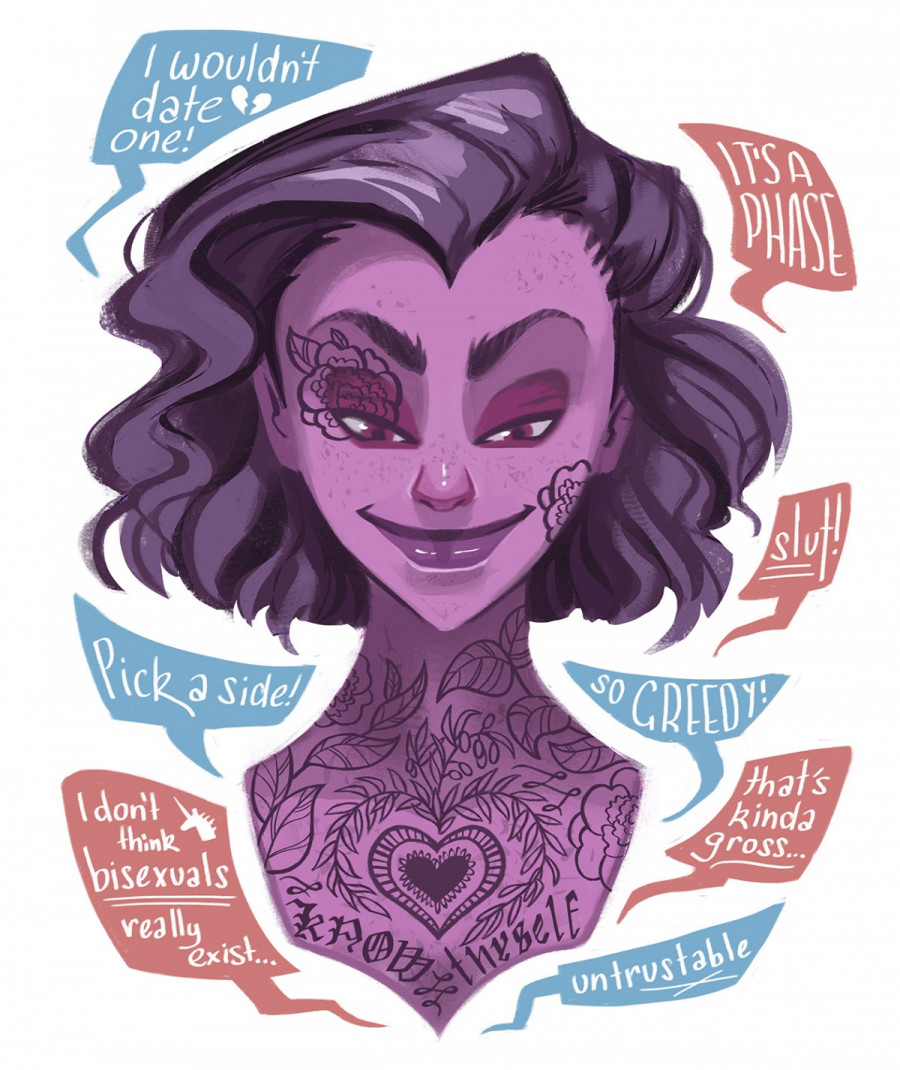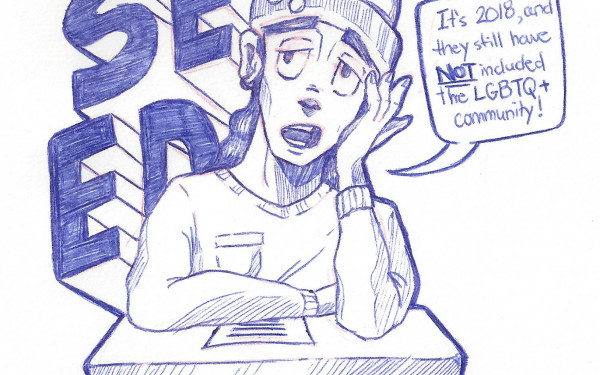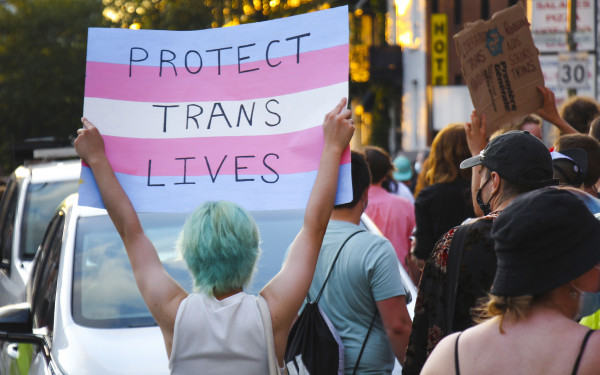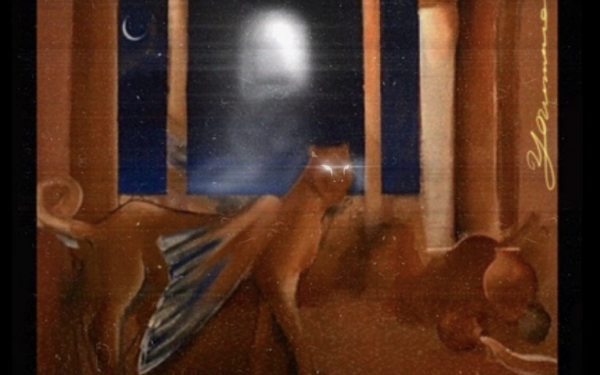How I Discovered, and then Stopped Caring About, Biphobia
Kissing Biphobia Goodbye
Biphobia! An exciting and refreshing form of discrimination that targets people who are bi/pansexual.
But here’s the kicker: It’s not just straight people who do it!
It’s a discrimination that everyone can participate in, isn’t that fun? That’s nice and all, right? But what does biphobia look like?
Well, there are several negative stereotypes associated with bisexuality and pansexuality.
Most of the stereotypes about bisexuality or pansexuality revolve around the ridiculous belief that neither of them are real sexualities. The claim is that people who identify as bi or pan must be either confused, hiding their true sexual orientation, going through a phase, or just straight up greedy and want to bang everyone and anyone indiscriminately.
Bisexual guys are often assumed to be gay and don’t want to admit it while bisexual girls are often accused of faking it to garner the attention of straight males.
There are a lot of preconceived notions about bisexuality. It can take different forms and can come from different people.
A couple of years ago, when I had started to explore my queerness, I vaguely knew that biphobia was a thing. I had heard people talk about it, but I had never encountered it firsthand.
As I delved deeper into the LGBTQ+ world, I had a couple of gay male friends, but I didn’t know any queer women. So, naturally, I turned to the internet.
At some point, I found a lesbian Youtube channel and watched a couple of videos. At first, I was elated. She was so confident, so casual about her attraction to women, so comfortable in her own skin. I was so excited to explore this new world of possibilities. It looked great!
Scrolling through her channel for more videos to watch, I spotted one titled something along the lines of “What do lesbians think about bisexuals?” I clicked on it, thinking it would be a fun, tongue-in-cheek kind of discussion. Spoiler alert: I was wrong.
For almost ten minutes, I watched real people spout out all the negative stereotypes about bisexual women that I had only vaguely heard going around, and then some. More often than not, it was said with a sneer, or a dismissive laugh.
“I’d never date a bi girl, she’d end up cheating on me with a guy.” “Just make up your mind! You can’t just not know which gender you prefer.” “They’re just greedy. Or confused.” “When an attractive girl is bisexual, that’s just so unfortunate.” “It disgusts me, thinking she had a dick in her last week.”
Watching this video at a moment when I was questioning my sexuality and my identity, at a moment when I was unsure of myself and trying to build confidence, was devastating. I felt ashamed, undesirable, unwanted. For some time after, I’d avoid bringing up my orientation around any gay and lesbian acquaintances for fear that they would respond to me the same way the people in that video did.
A couple of years later, I was working in a sex-shop two streets away from the Gay Village. The kind of place where open-minded and non-judgmental people would work. Or so I thought.
We sold a couple of books, most of which were grossly outdated. One of them was titled Pour ou contre la bisexualité? It struck me as the wrong question to ask. It was like saying, “Are you in favor or against the laws of physics?” You can disagree with the concept of gravity all you want, but that doesn’t mean that you’re likely to start floating any time soon.
Off handedly, I brought up to my supervisor that the premise of the book was perhaps a little bit dated and that the literature section could use an update. Instead of listening to my suggestion, she proceeded to condescendingly explain to me that genetic markers had been found for homosexuality, but not for bisexuality. Ergo, bisexuality is a choice influenced by culture, and not an actual sexual orientation. As proof, she cited her bisexual friends who were attracted to men but who sometimes chose to “fool around” with women.
I was stunned and furious. I wanted to shove the book down her throat. Unfortunately, I needed the money pretty badly, so I didn’t do that.
After some arguing that went nowhere, I walked away before I started screaming at her. I didn’t bring up the subject with the managers, doubtful that I would get much support from the them.
Although unlike the first time, I didn’t feel so much shame as frustration. I was angry that I was constantly having to try and prove my existence. Worse, I was told my sexuality was invalid, and that other people knew better than me when it came to my feelings and identity. I felt small.
Those two events made me wary of disclosing my sexual orientation to friends and coworkers, but that didn’t stop me from doing it. And the good news was that, in the end, most people didn’t care.
Sure, some do. But I don’t want to let that affect me. I’m not going to pretend to be something I’m not in fear of negative reactions. By being open about my identity, and talking about biphobia, I’m hoping those sorts of reactions will become increasingly infrequent, both in the queer community and outside of it.
I want to encourage people to reconsider what they think about bisexual people. And if I can piss off a couple of biphobic, closed-minded folks along the way, well, that’s just an added bonus.




_600_375_90_s_c1.jpg)


